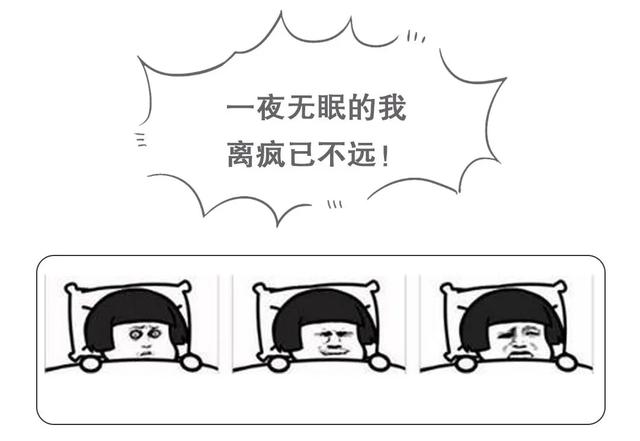英语给孩子的忠告(对叛逆孩子的情感解释)
Emotional Explanations for The "Defiant" Child
对叛逆孩子的情感解释
作者:Daniel Flint,博林格林州立大学临床心理学博士研究生,主要研究儿童临床心理学和宗教与精神心理学。在临床方面,他与孩子和他们的父母合作,为各种各样的行为问题设计可行的干预措施。
翻译:罗红霉素
Parents and clinicians alike may be tempted to label children who exhibit repeated acts of defiance or misbehavior as “oppositional/defiant.” Oppositional Defiant Disorder (ODD), with an estimated adolescent prevalence of up to 12.6%, is a diagnosis that encompasses many behavioral symptoms relating to misbehavior, angry/irritable mood, argumentativeness/defiance, and vindictiveness. This means that children who meet the criteria for ODD often lose their temper, get annoyed easily, argue, defy requests/rules, and act in a spiteful, aggressive manner towards others. In short, children labeled with ODD are often seen as inherently oppositional and temperamentally difficult or vindictive.
父母和临床医生可能会试图将表现出反复违抗行为或不当行为的孩子贴上“对立/违抗”的标签。对立违抗性障碍(ODD),估计青少年患病率高达12.6%,是一种包含许多与不当行为、愤怒/易怒情绪、争论/违抗和报复有关的行为症状的诊断。”这意味着,符合这标准的孩子经常发脾气,很容易生气,争论,反抗要求/规则,并对他人表现出恶意和侵略性。简而言之,被贴上对立违抗性障碍标签的孩子通常被视为天生的对立者,在气质上难以相处或怀有报复心理。
However, making these types of characterological attributions could do more harm than good—they don’t produce any workable solutions and may even distract from a real underlying psychological problem! In fact, ODD itself is likely best understood as a label for a cluster of behavioral symptoms rather than an underlying cause of those behavioral symptoms. While this blog post has no intention to delve into the moral implications of childhood misbehavior, it's worthwhile to explore other clinical explanations of childhood defiance that may help parents address the real root of the problem.
然而,把这些类型的性格归因可能弊大于利——它们不会产生任何可行的解决方案,甚至可能转移人们对真正的潜在心理问题的注意力!事实上,ODD本身最好被理解为一系列行为症状的标签,而不是这些行为症状的根本原因。虽然这篇博文无意探究童年时期不当行为的道德含义,但值得探讨的是,童年时期反抗行为的其他临床解释可能有助于父母解决问题的真正根源。
This article uses clinical and research evidence to suggest three possible causes for childhood misbehavior in an effort to defend the character of the so-called "defiant child" and help parents stay aware that acting out can be a symptom of an underlying clinically significant problem that might otherwise go unnoticed.
这篇文章利用临床和研究证据,提出了导致儿童行为不端的三个可能原因,以努力捍卫所谓的“叛逆儿童”的性格,并帮助父母保持意识,行为不端可能是一个潜在的临床重大问题的症状,否则可能会被忽视。
1. Defiance may be a sign of anxious distress
1. 反抗可能是一种焦虑不安的迹象
General emotional distress (e.g., anxiety, sadness) was mentioned as a potential root cause of defiance and misbehavior. Below, we take a more nuanced approach and discuss the link between disruptive behavior and disorders of anxiety specifically. About 40% of children who meet the criteria for ODD also meet the criteria for an anxiety disorder. This means that almost half of all children who exhibit clinically significant behavior problems also experience a clinically significant amount of anxiety—that's an astonishing comorbidity rate! Researchers have sought to untangle the direction of effects regarding the two types of disorders, and like many things in life, it's a complicated matter that depends on the myriad individual and environmental factors. However, what is clear is that at times, oppositional and defiant behavior can be rooted in intense feelings of anxiety.
一般的情绪困扰(如焦虑、悲伤)被认为是反抗和不当行为的潜在根源。下面,我们将采用更细致入微的方法,具体讨论破坏性行为和焦虑症之间的联系。大约40%符合ODD标准的儿童也符合焦虑症的标准。这意味着几乎一半的表现出临床意义重大的行为问题的儿童同时也经历了临床意义重大的焦虑——这是一个惊人的共病率!研究人员试图理清这两种疾病的影响方向,就像生活中的许多事情一样,这是一个复杂的问题,取决于无数的个人因素和环境因素。然而,有一点是清楚的,有时候反抗的行为可能根植于强烈的焦虑感。
Children with anxiety disorders exhibit excessive worries, fears, and anxiety that may be general and span different domains of life (as with Generalized Anxiety Disorder) or specific to a particular type of situation (as with Social Anxiety or Separation Anxiety Disorder). One of the key features of all anxiety disorders is that the person finds it difficult to control his or her worrying. This means that when children suffer from untreated anxiety disorders, they may have an exceptionally hard time coping or regulating their emotions when placed in anxiety-inducing situations—at times becoming defiant or oppositional as a result. In part one, we discussed childhood defiance as a form of control-seeking in uncertain, anxiety-provoking situations or a form of (faulty or misleading) self-expression when unable to articulate an intense emotional experience in a more socially acceptable way. Both explanations remain likely scenarios for children with anxiety disorders.
患有焦虑症的儿童表现出过度的担忧、恐惧和焦虑,这些焦虑可能是普遍的,跨越了生活的不同领域(如广泛性焦虑症),也可能只针对特定类型的情况(如社交焦虑症或分离焦虑症)。所有焦虑症的关键特征之一就是患者发现很难控制自己的焦虑。这意味着,当儿童患有未经治疗的焦虑症时,他们可能会有一段非常艰难的时间来应对或调节他们的情绪,当处于焦虑诱导的情况下,有时会变得叛逆或对立。在第一部分中,我们讨论了在不确定的、引起焦虑的情况下,童年反抗作为一种寻求控制的形式,或者在无法以更能为社会接受的方式表达强烈的情感体验时,作为一种(错误或误导的)自我表达的形式。这两种解释都可能适用于患有焦虑症的儿童。
Additionally, when fear and anxiety are more acute, children may become oppositional simply in an effort to escape the situation that makes them feel such emotional distress. This is called “avoidance,” and children and adults alike go to great lengths to steer clear of the things that they fear the most in life. For example, a child that meets the criteria for Separation Anxiety Disorder may exhibit persistent reluctance, and even downright refusal, to go to school because of an intense fear about leaving loved ones. While this behavior could easily be construed as opposition and defiance, a further assessment of the child’s internal states would reveal the true cause of the disruptive behavior.
此外,当恐惧和焦虑更加强烈时,孩子们可能会变得对立,只是为了逃避让他们感到情绪压抑的情境。这就是所谓的“逃避”,孩子和成年人一样会竭尽全力地避开他们生活中最害怕的事情。例如,符合分离焦虑障碍标准的孩子可能会表现出持续的不情愿,甚至完全拒绝去上学,因为他们非常害怕离开所爱的人。虽然这种行为很容易被理解为反对和蔑视,但对孩子的内在状态的进一步评估将揭示破坏性行为的真正原因。
2. Defiance may be a sign of depression symptoms
2. 反抗可能是抑郁症状的标志
Of these three types of disorders, depression is the least common, however, among older children, depression has an occurrence rate of greater than one-in-twenty. And, although this prevalence rate is fairly low, individuals can have symptoms of depression without exceeding the threshold necessary for a diagnosis of depression. With this in mind, it's worth considering the possibility that older childhood misbehavior may be a sign of depression symptoms.
在这三种疾病中,抑郁是最不常见的,然而在年龄较大的儿童中,抑郁的发生率大于二十分之一。而且,尽管这一患病率相当低,但个体可以在不超过诊断抑郁症所需的阈值的情况下出现抑郁症状。考虑到这一点,值得考虑的是,童年时期的不良行为可能是抑郁症状的一种迹象。
Especially given that irritability is a key diagnostic feature of depression in children and adolescents, one can quickly make the logical jump to understand that a depressed child might be predisposed towards acting out. Imagine if 14-year-old Jess, who lives a fairly average daily life, experiences none of the normative daily highs that her peers do. She doesn't enjoy her elective art class, she doesn't feel excited when her team wins in gym class, she doesn't grow eager to get home at the end of the day. Instead, her mood exists somewhere between flat emptiness and mild grumpiness. How much more likely is Jess to react unpleasantly in response to her parent's request to take out the trash than her peers might be? For the adolescent who experiences more-than-average symptoms of depression (regardless of qualifying for clinical diagnosis), simple inconveniences and tasks are not buffered by the daily highs experienced by most children. As a result, Jess may react to her parent in a defiant manner – or even break down into tears of frustration. Signs like this suggest that the child may be experiencing some emotional turmoil rather than that they are a defiant child.
特别是考虑到易怒是儿童和青少年抑郁的一个关键诊断特征,我们可以很快做出合乎逻辑的跳跃来理解一个抑郁的孩子可能倾向于表现出来。想象一下,如果14岁的杰西过着相当普通的日常生活,却没有经历过同龄人所经历的正常的日常高潮。她不喜欢自己选修的艺术课,当她的团队在体育课上获胜时,她不会感到兴奋,她也不会变得急于在一天结束后回家。相反,她的情绪介于空虚和温和的暴躁之间。杰茜比她的同龄人会不会更可能对父母倒垃圾的要求做出不愉快的反应?对于青少年谁经历超过平均水平的抑郁症症状(无论资格的临床诊断),简单的不便和任务不会被日常高潮缓冲。结果,杰西可能会以一种挑衅的方式对她的父母做出反应——甚至会因为沮丧而大哭。像这样的迹象表明,孩子可能正在经历一些情感上的混乱,倒不是因为她是一个反抗的孩子。
3. Defiance may be a symptom of traumatic stress
3.反抗可能是创伤压力的一种症状
Finally, childhood defiance may be rooted in previous exposure to a traumatic event. The way children react to trauma can often look a lot like oppositional defiance, and indeed, a large percentage of children who are exposed to trauma subsequently exhibit dramatic changes in behavior that map quite well onto the symptoms described by ODD.
最后,童年时期的反抗可能源于之前的创伤事件。孩子们对创伤的反应通常看起来很像反抗,事实上,很大一部分暴露于创伤的孩子随后表现出行为上的巨大变化,这些变化很好地反映了对立违抗性障碍的症状。
Childhood traumatic experiences take many forms—exposure to violence, medical trauma, and natural disasters. These are events that pose serious emotional or physical injury or even threaten death to the child. To be clear, these events threaten a child’s sense of physical or emotional safety in a way that major life stressors (e.g., parental separation/divorce, parental remarriage, moving) do not. Most children who are exposed to traumatic events experience initial high levels of distress that diminish over time—it is well established that most individuals naturally recover from traumatic stress. However, there is a subset of children who do continue to experience long-term effects of trauma, such as behavioral problems, poor emotion regulation, physical health problems, and academic struggles. Indeed, like many things in life, reactions to trauma exist on a spectrum—child reactions to trauma vary widely, and at times, defiance, temper loss, and other disruptive or destructive behaviors may occur.
童年创伤经历有多种形式——接触暴力、医疗创伤和自然灾害。这些事件造成严重的情感或身体伤害,甚至威胁到孩子的生命。需要明确的是,这些事件以一种主要的生活压力因素(如父母分居/离婚、父母再婚、搬家)无法消除的方式威胁着孩子的身体或情感安全感。大多数暴露于创伤性事件的儿童最初会经历高度的痛苦,随着时间的推移,这种痛苦会逐渐减轻。然而,仍有一部分儿童继续遭受创伤的长期影响,如行为问题、情绪调节不良、身体健康问题和学习困难等。事实上,就像生活中的许多事情一样,对创伤的反应存在于一个谱系——孩子对创伤的反应差异很大,有时反抗、发脾气和其他破坏性的行为可能会发生。
So how exactly can trauma lead to childhood defiance? To quote researchers Perry and Pollard, “All experiences change the brain, but not all experiences affect the brain equally." Traumatic events are uniquely threatening and may cause impairments in the function of several brain areas responsible for emotional and behavioral regulation. These impaired neurophysiological processes often render a child more likely to be reactive to everyday stressors, leaving him or her feeling unsettled and leading to emotional and behavioral outbursts [10]. In other words, children whose brains have been deeply affected by a traumatic event are more likely to “overreact” or become defiant, especially in situations that threaten the child’s sense of safety or well-being.
那么,创伤究竟是如何导致儿童反抗的呢?引用研究人员Perry和Pollard的话,“所有的经历都会改变大脑,但并不是所有的经历对大脑的影响都是一样的”。创伤事件具有独特的威胁性,可能导致负责情绪和行为调节的几个大脑区域的功能受损。这些受损的神经生理过程往往使孩子更容易对日常压力做出反应,使他或她感到不安,并导致情绪和行为的爆发。换句话说,那些大脑受到创伤事件严重影响的孩子更有可能“反应过度”或变得目中无人,尤其是在威胁到孩子的安全感或幸福感的情况下。
Take, for example, an all-too-common form of childhood trauma: repeated and incessant bullying. Imagine Johnny, who is in 3rd grade, goes to school every day where his peers laugh at his clothes, push him into the walls when the teacher isn't looking, and even spit on him. Like many children who are survivors of bullying, he feels powerless and defenseless while this is happening. Soon, Johnny starts to hate going to school. Even the thought of going to school triggers a physical reaction—blood rushes to his face, his stomach gets all knotted up, he loses his appetite. He starts to refuse to get on the bus in the morning, throwing tantrums or running away from his parents. He might even refuse to do his homework in the evenings because it reminds him of his experiences that day at school. Surely, these acts of outward defiance are not rooted in an oppositional temperament or a flaw in his parents’ parenting skills—they are an entirely reasonable reaction to an extreme situation in which Johnny’s very well-being is threatened!
举个例子,一个非常常见的童年创伤的形式:反复不断的欺凌。想象一下,三年级的约翰尼每天去学校,同学们嘲笑他的衣服,趁老师不注意把他推倒在墙上,甚至朝他吐唾沫。像许多受欺凌的幸存者一样,当这种事情发生时,他感到无能为力、毫无防备。不久,强尼开始讨厌上学。甚至一想到要去上学就会引起身体的反应——血液涌上他的脸,他的胃都打结了,他失去了食欲。他开始拒绝在早上上车,发脾气或从父母身边跑开。他甚至可能拒绝在晚上做作业,因为这会让他想起那天在学校的经历。当然,这些公然反抗的行为并不是植根于对立的性格或他父母的育儿技巧的缺陷——它们是一个完全合理的反应,在一个极端的情况下,约翰尼的健康受到了威胁!
Why is labeling accurately—or, just as importantly, choosing not to label—so meaningful? The defiant label stigmatizes the child as inherently “bad” or comparatively worse than other children. This has implications relating to self-esteem, self-fulfilling prophecy, and parental interventions. Additionally, viewing defiance as a fundamental personality flaw could lead to two equally dangerous outcomes: 1) it could absolve parents and child of the responsibility to be agents of change, since personality is often viewed as relatively stable, or 2) it could lead to parents feeling hopeless about ever-improving their child’s behavior and perhaps even giving up trying. It should be noted that our hope is not to discourage parents from seeking treatment for their child's misbehavior, but rather to empower parents with knowledge about defiant behavior so that they are better equipped to tackle their child's behavior problems.
为什么准确的标记——或者同样重要的是,选择不标记——如此有意义?反抗性的标签侮辱孩子天生“坏”或相对比其他孩子更坏。这与自尊、自我实现预言和父母干预有关。此外,视挑战为一个基本人格缺陷可能导致两个同样危险的结果:1) 它免除家长和孩子作为变革动力的责任,因为人格通常被视为相对稳定,2) 可能导致父母对改善孩子行为感到绝望,甚至放弃尝试。值得注意的是,我们的希望不是阻止父母为孩子的不端行为寻求治疗,而是让父母掌握反抗行为的知识,这样他们就能更好地应对孩子的行为问题。
- 原文载于 Psychology Today, https://www.psychologytoday.com/us/blog/behavior-problems-behavior-solutions/202005/3-emotional-explanations-the-defiant-child

免责声明:本文仅代表文章作者的个人观点,与本站无关。其原创性、真实性以及文中陈述文字和内容未经本站证实,对本文以及其中全部或者部分内容文字的真实性、完整性和原创性本站不作任何保证或承诺,请读者仅作参考,并自行核实相关内容。文章投诉邮箱:anhduc.ph@yahoo.com






